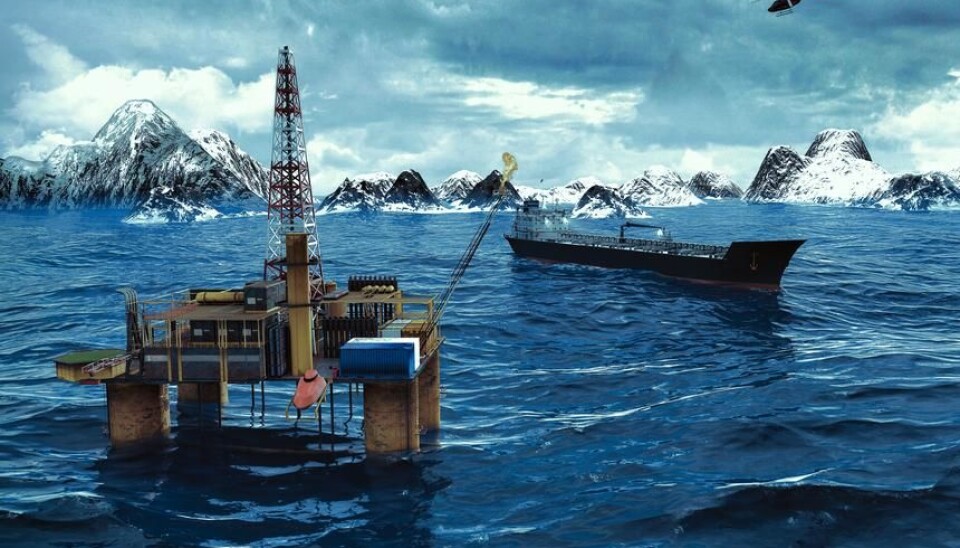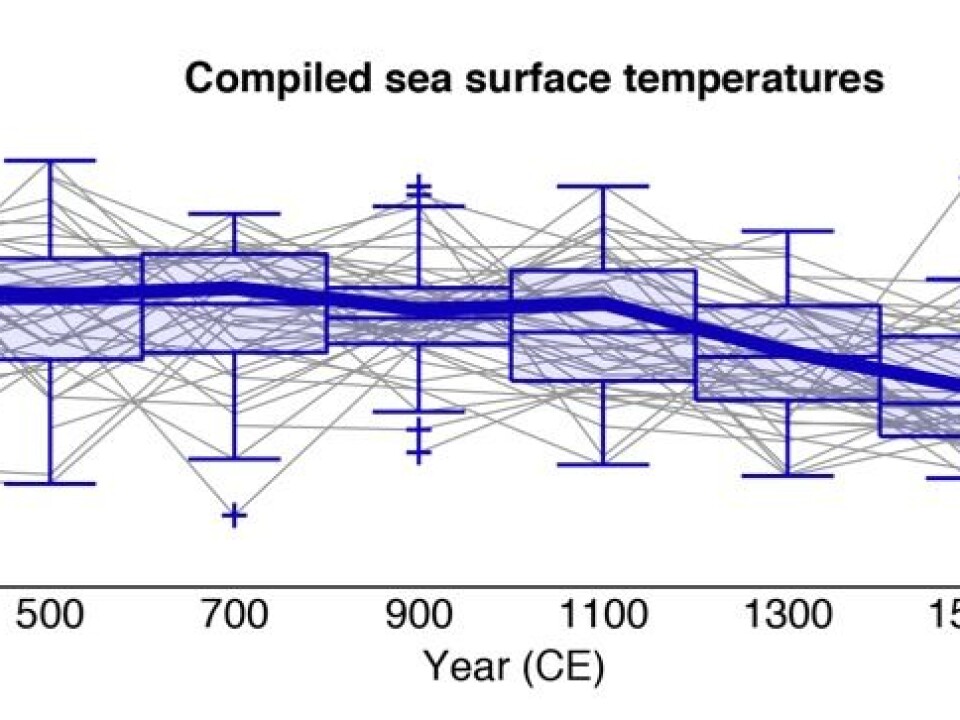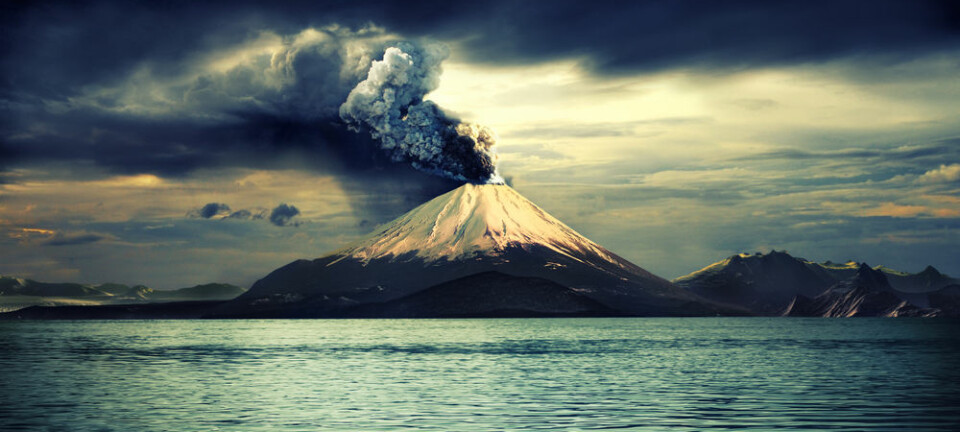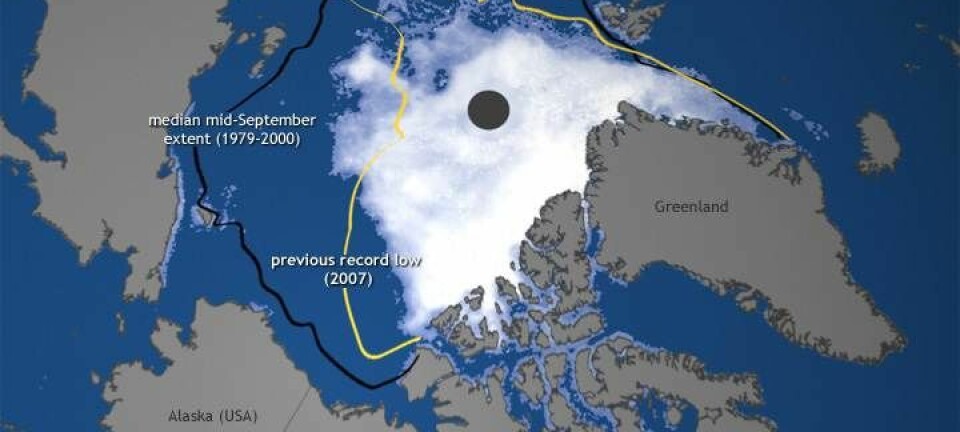
Modern industrialisation killed ocean cooling
Ocean temperatures were cooling for almost two millennia but then human industrialisation came along.
Before we started burning fossil fuels, Earth’s oceans had been cooling for almost 2,000 years.
The primary cause for this cooling was a cluster of volcanic eruptions that suppressed global temperatures by blocking out sunlight.
But this all changed with the Industrial Revolution, as massive increases in man-made greenhouse gases began heating the Earth at faster rates than volcanoes could counteract.
These are the conclusions of a new study by an international team of scientists.

“We see consistent cooling in the ocean from around 2,000 years ago and until the Industrial Revolution kicks in in the early 1800s,” says co-author Helena Filipsson, a senior lecturer in Quaternary Sciences in the Department of Geology, Lund University, Sweden.
The new study provides fresh evidence of human-induced warming of the ocean, and is yet another nail in the coffin for those who argue that the addition of man-made greenhouse gases over the past 200 years have had no impact on the planet’s climate.
Clear evidence of man-made climate change
The scientists trawled through thousands of published records of sea surface temperatures and carefully selected 57 records from ocean sediments, to use in their study.
This nitpicking was necessary to make reliable comparisons between the records, says Professor Marit-Solveig Seidenkrantz from the Department of Geosciences at Aarhus University, Denmark, who was involved with the selection process.
“For each of the 57 records, we combined the data into 200-year blocks so that each block had an average value for sea surface temperature. This could then be compared with other records from other ocean basins around the world, and from this we created a graph which shows global sea surface temperature over the last 2,000 years,” she says.
The graph showed that oceans had been cooling at a rate of about 0.3 to 0.4 degrees centigrade per millennium up until the 1800s.
“The cooling is only interrupted by the recent warming due to anthropogenic [originating in human activity] input of greenhouse gases in the atmosphere,” says Filipson.
Volcanic eruptions cool the planet
The scientists then compared their sea surface temperature data with several climate model simulations to find out what was causing the cooling.
The climate models included all the information needed to realistically simulate global climate: changes in CO2 and other greenhouse gases, changes in solar insolation [the amount of energy we receive from the sun], volcanic eruptions, and changes in how the land is used, such as the amount of forest or farmland, which also affect the climate.
When the data came back, it pointed to a series of volcanic eruptions as the primary culprit for the cool temperatures.
Volcanoes are well known to affect atmospheric temperatures and the new study confirms their ability to also cool oceans on a global scale.
It also shows the amount of cooling is small compared to recent global warming.
Filipson and Seidenkrantz say that current warming due to greenhouse gases in the atmosphere is occurring 20 times faster than the rate of ocean cooling recorded in their study over the past 2,000 years.
According to them, the ocean has warmed by 0.8 degrees centigrade in the last 200 years alone, compared to the 0.4 degrees centigrade of cooling every 1,000 years attributed to volcanoes.
A ‘significant advance’ in climate research
According to Professor Kim Cobb, from the Department of Earth and Atmospheric Sciences, Georgia Tech University, USA, calls the study's results "robust". The evidence of a cooling trend is solid and offers valuable data and a good methodology for other scientists attempting to understand how the climate changes over timescales of thousands of years.
“It illustrates how a very robust estimate of global temperature can be extracted from just 57 records, which is an impressive result,” says Cobb, who did not partake in the new study.
“I think this represents a significant advance in the field of paleoclimate [the study of climates of the past]. To be able to combine many individual records of ocean temperatures and say something quite ambitious about global temperatures from what is really a handful of records, is impressive,” says Cobb.











